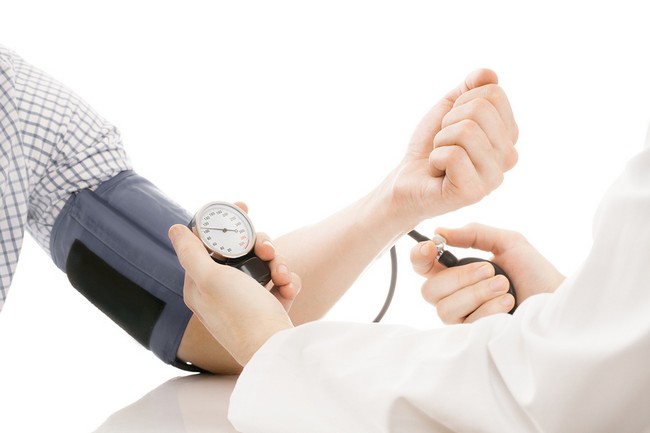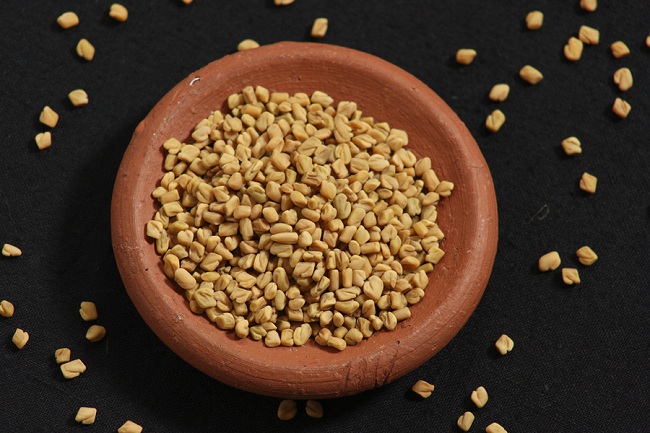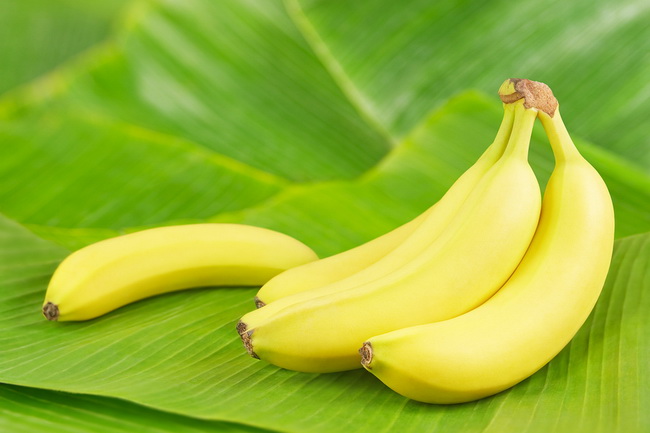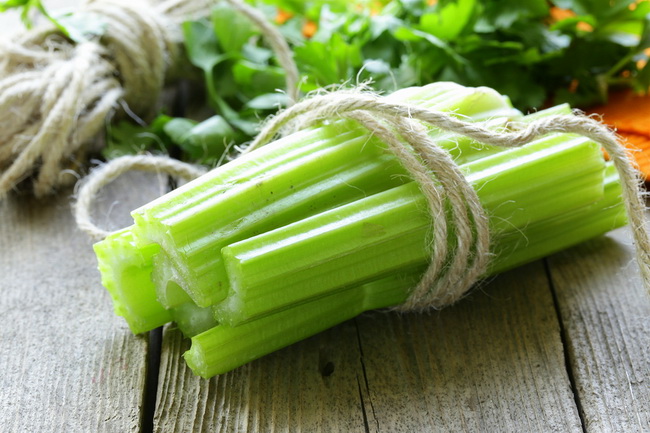- Make It Yourself Lavender Heart-Shaped Bath Bombs!
- 20 Things You Never Knew About “Down There”
- 12 Best Foods For Those Suffering From Arthritis Pain
- 12 Personal Hygiene Mistakes Almost Everyone Makes (Mom Never Told You About #4!)
- 15 Medicinal Plants And Herbs From The Cherokee People
- 12 Mind-Blowing Benefits Of Drinking Coconut Water During Pregnancy
- 12 Outstanding Winter Foods That Won’t Fatten You Up Like A Christmas Turkey
12 Of The Best Remedies To Reduce High Blood Pressure Naturally, No Pills, No Sweat!

Photo credit: bigstock.com
Hypertension is a serious health problem with serious health consequences. Most people with hypertension end up having heart disease, kidney failure, heart attacks, or strokes. A normal blood pressure reading is 140/90 mm Hg. Anything higher than this is considered to be above average.
People who have a sustained high reading over a certain time period are officially diagnosed as having hypertension or high blood pressure. Some of the contributing factors of hypertension are stress, birth control pills, kidney disease, and a high sodium diet, lack of exercise, obesity, genetics, pain relievers, and adrenal disease.
Most doctors will prescribe medications that help to control high blood pressure, but these have some annoying side effects, such as constant dizziness, and must be taken as long as you live.
If that doesn’t sound like a pleasant prospect, you will be happy to note that most people find that they can control their blood pressure through completely natural remedies.
Want to lower your blood pressure naturally? Keep reading!
1. Reduce and Manage Stress
Chronic stress is an important factor when it comes to hypertension. Even occasional stress can lead to high blood pressure when people react to it through excessive drinking, chain smoking, and overeating or indulging in unhealthy foods.
Think about what causes you stress in your life. Once you identify it, you can figure out ways to reduce or eliminate certain stressful people or situations in your life.
For things that you cannot remove from your life, you can learn ways of dealing with them. Try yoga and/or meditation. Get therapy to help talk about and find solutions to some of your stressful situations or the ways in which you handle it.
2. Lemons
Lemon juice helps to keep the blood vessels flexible and soft. By removing the rigidity from the blood vessels, the blood pressure levels will come down. You can lower your chances of complete heart failure by consuming lemon juice on a regular basis. The vitamin C in lemon juice is also a powerful antioxidant, which helps to neutralize free radicals and supports the immune system. All it takes is the juice from one lemon added to a glass of water. Consume this each morning, on an empty stomach.
3. Reduce Your Salt Intake
Even a very small reduction in your sodium consumption can reduce your blood pressure by as much as 2 to 8 mm Hg. Although the effects of salt on blood pressure varies from person to person, for most people, a sodium level of less than 2,300 mgs each day is considered to be safe. However, if you suffer from hypertension, lowering your salt consumption to no more than 1,500 mgs each day can help to drastically reduce your blood pressure, especially if you are in any of the high risk groups that tend to have sensitivity to salt such as:
- Those over 50 years of age
- African Americans
- Those with chronic kidney disease
- Those with diabetes
Read food labels and choose low-sodium options. Eating fewer processed foods is an even better alternative. Sodium occurs only in very small amounts. Almost all of the sodium found in food is added when they are processed. Use one of the many salt alternatives in the spice aisle of your supermarket that use a wide variety of spices to give food flavor rather than relying on salt.
Continue to Page 2

Photo credit: bigstock.com
4. Watermelon Seeds
This one might sound strange, but it’s true; cucurbocitrin is a compound found in watermelon seeds that widen the capillaries. It also improves kidney function. This will lower blood pressure and even helps with arthritis. A Florida State pilot study performed in 2010 discovered that the vasodilator effect of watermelon seeds can lower blood pressure. To try this method, simply crush about 2 teaspoons of dried watermelon seeds to one cup of boiling water. Allow seeds to steep, covered, for one hour, then strain. Consume 4 tablespoon of this “tea” at regular intervals throughout the day.
5. Fenugreek Seeds
Fenugreek seeds lower blood pressure levels due to their high levels of potassium. Potassium binds with salt and removes it from the body, which will lower blood pressure. Boil two teaspoons of fenugreek seeds in one cup of water for two or three minutes, then strain. Place the boiled seeds in your blender and mix until it forms a paste. Separate the paste into two portions and consume one portion each morning and the other in the evening. This might take 8 weeks before you begin to get results, but many people swear by this method.
6. Garlic
There have been numerous studies showing that garlic is good for the heart because it lowers blood pressure levels. Both raw and cooked garlic will work to reduce cholesterol levels and by relaxing the blood vessels. Garlic also stimulates the production of hydrogen sulfide and nitric oxide. Garlic should be crushed or cut to release its active ingredient, allicin. Crush two cloves of organic garlic each day, wait about 10 minutes, and then swallow them whole if you can. If that is just too strong for you, add minced or cut up garlic into your salads, stir fry’s, or other foods. You can also consume a supplement, but speak to your doctor about the proper dosage.
Continue to Page 3

Photo credit: bigstock.com
7. Honey
Well, here is a sweet way to reduce blood pressure! This is because honey has a calming effect on the blood vessels, which will reduce blood pressure levels. Simply eat two teaspoons of raw, organic honey on an empty stomach every morning. You can also mix lemon juice and honey together for a double whammy of blood vessel relaxing power. Sweet!
8. Banana
If you suffer from hypertension, bananas are the one fruit you should make your best friend. Because they are high in potassium, they can reduce the effects of sodium. Potassium binds with salt and removes it from the body. Eat two or three bananas each day. In addition to bananas, other high potassium foods are sweet potatoes, winter squash, raisins, spinach, oranges, dried apricots, currants, and zucchini.
9. Onion Juice
This might not make you the kissing sensation of the world, but it will lower your blood pressure. Onions lower your blood pressure due to an antioxidant flavonol called quercetin. If you love onions, eat one medium sized, raw onion each day. Add it to your foods and sandwiches to make it easy to eat. If that sounds like way too much onion, try mixing one half teaspoon of onion juice in one teaspoon of honey and consume this twice each day. This should get you lower blood pressure readings within 14 days!
Continue to Page 4

Photo credit: bigstock.com
10. Celery
Celery lovers, this one is for you! Celery contains a phytochemical called 3-N-butylphthalide, which helps to control high blood pressure. Phthalides are known to relax the muscles that surround the arterial walls, which makes more space so that blood can flow without obstruction. Celery also reduces the stress hormones which constrict blood vessels. All it takes is one stalk of organic celery each day along with a glass of water.
11. Coconut Water
Speaking of water, in order to keep the blood thin, be sure you drink a minimum of 8 glasses of water each day. Coconut water is super beneficial when it comes to blood pressure. The West Indian Medical Journal published a 2005 study which found that potassium rich coconut water decreases systolic blood pressure.
SEE ALSO: Herbal Remedies for High Blood Pressure
12. Cayenne Pepper
If you like it hot, this just might be your solution. Cayenne pepper smooths blood flow by preventing the platelets in the blood from clumping together. This means the blood has fewer restrictions and can flow more easily. Simply add a pinch of cayenne pepper to your salads, soups, stews, and casseroles for a spicy blood pressure reducing punch!
Extra Tips:
- Losing a few pounds will almost always results in lower blood pressure readings
- Get regular, moderate exercise
- Limit alcohol consumption
- Don’t smoke
- Consider joining a support group that can offer moral and emotional support
References:































Chris Stroh
Nov 18, 2017 at 7:54 am
Forgot Oatmeal is a great breakfast choice if you have high blood pressure, but oat bran can provide even more health benefits, since it’s higher in fiber, which helps to lower blood pressure and improves digestive health. This low-sodium food can be prepared as a hot cereal and topped with fruit or used in pancakes.
Fiber softens stool.
Vinegar great health benefits.
Moderation in your diet is a must.